September 24, 2018 •
California Bans Cryptocurrency Campaign Contributions
On September 20, the Fair Political Practices Commission prohibited the use of cryptocurrency in political contributions in California. The FPPC stated the anonymity of these donations would make it difficult to discern who is attempting to influence elections. This is […]
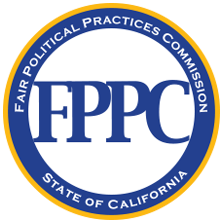 On September 20, the Fair Political Practices Commission prohibited the use of cryptocurrency in political contributions in California.
On September 20, the Fair Political Practices Commission prohibited the use of cryptocurrency in political contributions in California.
The FPPC stated the anonymity of these donations would make it difficult to discern who is attempting to influence elections.
This is contrary to the position the Federal Election Commission took in 2014, which said cryptocurrencies are in-kind property and federal candidates could accept them as a form of contribution under certain conditions.
September 18, 2018 •
Oakland to Launch Campaign Finance App for November Election
The Oakland Public Ethics Commission and OpenOakland, a civic technology group, have jointly released a new version of their web tool, Open Disclosure, to track political contributions in Oakland elections. The corresponding app, to be released on September 25, will […]
 The Oakland Public Ethics Commission and OpenOakland, a civic technology group, have jointly released a new version of their web tool, Open Disclosure, to track political contributions in Oakland elections.
The Oakland Public Ethics Commission and OpenOakland, a civic technology group, have jointly released a new version of their web tool, Open Disclosure, to track political contributions in Oakland elections.
The corresponding app, to be released on September 25, will show the source and spending of campaign funds for both Oakland city candidates and ballot measure committees.
In addition to displaying sources of contributions, the new release will also include data on spending by independent expenditures.
September 17, 2018 •
California Legislature Sends “Social Media DISCLOSE Act” to Governor
On September 12, California Gov. Jerry Brown was presented with a bill concerning political advertising in social media. Assembly Bill 2188, the “Social Media DISCLOSE Act”, requires disclosure for advertisements made “via a form of electronic media that allows users […]
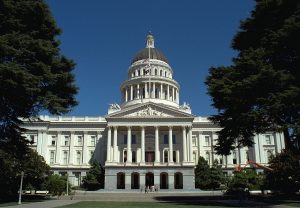 On September 12, California Gov. Jerry Brown was presented with a bill concerning political advertising in social media.
On September 12, California Gov. Jerry Brown was presented with a bill concerning political advertising in social media.
Assembly Bill 2188, the “Social Media DISCLOSE Act”, requires disclosure for advertisements made “via a form of electronic media that allows users to engage in discourse and post content, or any other type of social media”, and is paid for by a political party or a candidate-controlled committee. The disclosure obligations fall on both the registered political parties and committees and on the “online platforms.”
The online platform must maintain and make available for online public inspection a digital copy of a political advertisement, the number of impressions generated from the ad, information regarding the total amount spent on the advertisements, and other relevant information.
The bill defines an online platform as a “public-facing Internet Web site, web application, or digital application, including a social network, ad network, or search engine, that sells advertisements directly to advertisers. A public-facing Internet Web site, web application, or digital application is not an online platform for purposes of this [Act] to the extent that it displays advertisements that are sold directly to advertisers through another online platform.” The online platforms will be required to include with each political advertisement a disclosure of who funded the ad or a hyperlink to a website containing the required disclosures.
If signed by the governor, the bill takes effect on January 1, 2020.
August 23, 2018 •
Los Angeles Ethics Commission Delays Developer Pay-to-Play Decision
The Los Angeles City Ethics Commission deferred a decision on a bill to ban political donations from real estate developers. Rather than vote down the proposal, commissioners plan to define the scope of coverage for individuals seeking council approval for […]
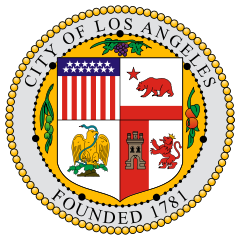 The Los Angeles City Ethics Commission deferred a decision on a bill to ban political donations from real estate developers.
The Los Angeles City Ethics Commission deferred a decision on a bill to ban political donations from real estate developers.
Rather than vote down the proposal, commissioners plan to define the scope of coverage for individuals seeking council approval for new developments. They may also choose to explore an alternative option.
They could require elected officials to recuse themselves from development proposal decisions if they have received contributions from the involved developers.
Commission President Serena Oberstein is concerned a ban on developer contributions would lead to money being funneled through independent expenditure committees.
She also questions whether direct contributions actually lead to corruption.
August 10, 2018 •
California FPPC to Consider Use of Cryptocurrency for Campaign Purposes
The Fair Political Practices Commission is considering changes to state campaign finance regulations. The commission was asked to consider the permissible use of cryptocurrency, such as Bitcoin, for campaign contributions and expenditures. Though similar to cash, such currency is not […]
 The Fair Political Practices Commission is considering changes to state campaign finance regulations.
The Fair Political Practices Commission is considering changes to state campaign finance regulations.
The commission was asked to consider the permissible use of cryptocurrency, such as Bitcoin, for campaign contributions and expenditures. Though similar to cash, such currency is not issued by a governmental entity.
Issues expected to be discussed at a public hearing include banning the use of cryptocurrency for campaign purposes, limiting cryptocurrency contributions to the amount of contributions received in cash, requiring cryptocurrency contributions to be converted to cash, permitting committees to establish separate cryptocurrency accounts, or permitting cryptocurrency contributions as in-kind contributions without regard to cash limits.
A public hearing will be held September 20, 2018; written comments should be received by September 18.
July 24, 2018 •
Gov. Jerry Brown Appoints New FPPC Chair
Alice Germond was appointed chairwoman of the California Fair Political Practices Commission last month. Germond and the commissioners are working to boost voter trust in the commission “so that they have faith when they go to the election booth that […]
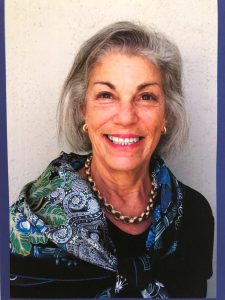 Alice Germond was appointed chairwoman of the California Fair Political Practices Commission last month.
Alice Germond was appointed chairwoman of the California Fair Political Practices Commission last month.
Germond and the commissioners are working to boost voter trust in the commission “so that they have faith when they go to the election booth that their vote is not bought and that the playing field is level and that the basic part of democracy is working for them.”
Germond will be the chair until January, when the newly-elected governor will have the option to appoint a new chairperson.
On July 24, the Berkeley City Council will meet in order to adopt the first reading of a new lobbying ordinance. The ordinance requires the registration and reporting of lobbyists in the city. Information in the ordinance includes requirements for […]
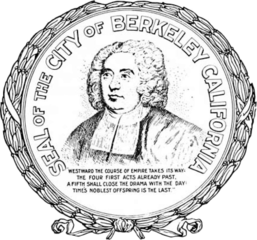 On July 24, the Berkeley City Council will meet in order to adopt the first reading of a new lobbying ordinance.
On July 24, the Berkeley City Council will meet in order to adopt the first reading of a new lobbying ordinance.
The ordinance requires the registration and reporting of lobbyists in the city.
Information in the ordinance includes requirements for lobbyist training, reporting periods, audits, gift restrictions, and penalties.
The City Council will also discuss an amendment to the revolving door provision, increasing it from one to two years.
Legislation amending San Francisco’s Campaign and Governmental Conduct Code takes effect next week. Ordinance No. 129-18 is effective June 30, though most of its provisions are not operative until January 1, 2019. The ordinance extends the restriction period for contractor […]
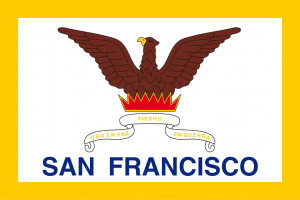 Legislation amending San Francisco’s Campaign and Governmental Conduct Code takes effect next week. Ordinance No. 129-18 is effective June 30, though most of its provisions are not operative until January 1, 2019.
Legislation amending San Francisco’s Campaign and Governmental Conduct Code takes effect next week. Ordinance No. 129-18 is effective June 30, though most of its provisions are not operative until January 1, 2019.
The ordinance extends the restriction period for contractor contributions from six to 12 months following contract approval. It also requires interested parties making a behested payment or payments of $10,000 or more to file a disclosure within 30 days.
Other changes include, but are not limited to, additional disclosure requirements for contributions from business entities and for bundled campaign contributions, as well as an additional pre-election statement for committees.
My employer makes corporate contributions in California. We have not yet exceeded $10,000 in calendar year 2018. The primary election and special elections are taking place, along with the general election in the fall. If we decide to make contributions, […]

 My employer makes corporate contributions in California. We have not yet exceeded $10,000 in calendar year 2018. The primary election and special elections are taking place, along with the general election in the fall. If we decide to make contributions, when do we have a late contribution report due?
My employer makes corporate contributions in California. We have not yet exceeded $10,000 in calendar year 2018. The primary election and special elections are taking place, along with the general election in the fall. If we decide to make contributions, when do we have a late contribution report due?

The California “Late Contribution Report” [Form 497], sometimes referred to as the “24-hour report” is due during the 90-day period preceding any election if all of the following criteria are met:
- The contribution is $1,000 or more, or multiple contributions aggregating $1,000 or more, to a single candidate, ballot measure committee, or political party. This includes non-monetary and in-kind contributions…Read the full article
For more information, be sure to check out the “Registration and Reports Required” section of the U.S. Political Contributions Compliance Laws online publication for California. Please feel free to contact us if you have any questions.
The San Francisco, California Board of Supervisors unanimously passed, on first reading, campaign finance reform legislation aimed at providing more transparency in political contributions. Among other provisions, the legislation will include pay-to-play provisions, local behested payment reporting requirements for both […]
 The San Francisco, California Board of Supervisors unanimously passed, on first reading, campaign finance reform legislation aimed at providing more transparency in political contributions.
The San Francisco, California Board of Supervisors unanimously passed, on first reading, campaign finance reform legislation aimed at providing more transparency in political contributions.
Among other provisions, the legislation will include pay-to-play provisions, local behested payment reporting requirements for both donors and City officers, and additional disclosure requirements for contributions made by business entities.
The legislation must pass a second reading at the Board of Supervisors and be signed by the mayor prior to becoming law.
Special primary elections were held in California on April 4 to fill the vacant seats of Assembly Districts 39, 45, and 54. Under California law, candidates receiving more than half the vote win outright. Otherwise the top-two finishers in each […]
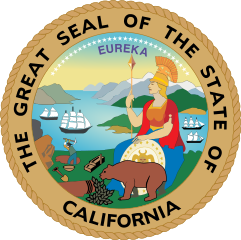 Special primary elections were held in California on April 4 to fill the vacant seats of Assembly Districts 39, 45, and 54.
Special primary elections were held in California on April 4 to fill the vacant seats of Assembly Districts 39, 45, and 54.
Under California law, candidates receiving more than half the vote win outright. Otherwise the top-two finishers in each race advance to a June 5 runoff.
If unofficial returns remain unchanged, there will be a June 5 runoff in the Assembly Districts 39 and 45 races.
In the Assembly District 54 race, unofficial returns have Sydney Kamlager receiving nearly 69 percent of the vote, more than enough to win outright without a runoff election.
An ad-hoc committee led by members of the Monterey County Board of Supervisors is starting a series of invitation-only meetings to discuss campaign finance reforms aimed at establishing contribution limits or a spending cap for all county elected officials. The […]
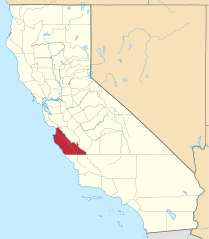 An ad-hoc committee led by members of the Monterey County Board of Supervisors is starting a series of invitation-only meetings to discuss campaign finance reforms aimed at establishing contribution limits or a spending cap for all county elected officials.
An ad-hoc committee led by members of the Monterey County Board of Supervisors is starting a series of invitation-only meetings to discuss campaign finance reforms aimed at establishing contribution limits or a spending cap for all county elected officials.
The goal of the meetings is to produce a recommendation for the full Board of Supervisors by the end of June and adopt limits in time for them to take effect January 1, 2019.
California Gov. Jerry Brown called a special election to fill the Senate District 32 seat. The special primary election will be June 5, the same day as the statewide primary, with a potential runoff to follow on August 7. The […]
 California Gov. Jerry Brown called a special election to fill the Senate District 32 seat.
California Gov. Jerry Brown called a special election to fill the Senate District 32 seat.
The special primary election will be June 5, the same day as the statewide primary, with a potential runoff to follow on August 7.
The seat opened after Tony Mendoza resigned amid sexual harassment allegations.
The city of San Jose is transitioning to an electronic system for filing weekly lobbyist reports. To file weekly reports, a lobbyist must register to create an account on the Weekly Lobbyist Reporting Form portal at the city clerk’s website. […]
 The city of San Jose is transitioning to an electronic system for filing weekly lobbyist reports.
The city of San Jose is transitioning to an electronic system for filing weekly lobbyist reports.
To file weekly reports, a lobbyist must register to create an account on the Weekly Lobbyist Reporting Form portal at the city clerk’s website.
The prior weekly reporting form will be available on the clerk’s website until March 12.
Fines for failure to file a weekly report or filing a weekly report late will not be assessed until July 1, 2018.
State and Federal Communications, Inc. provides research and consulting services for government relations professionals on lobbying laws, procurement lobbying laws, political contribution laws in the United States and Canada. Learn more by visiting stateandfed.com.

